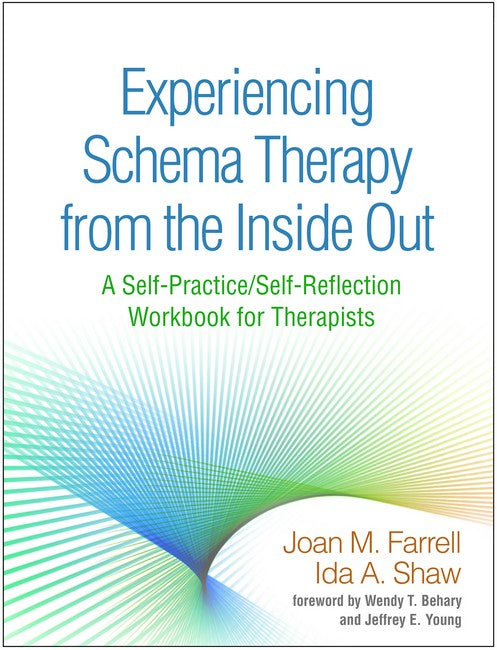Description
Foreword, Wendy T. Behary and Jeffrey E. Young 1. Introducing Experiencing Schema Therapy from the Inside Out 2. The Conceptual Model of Schema Therapy 3. Guidance for Participants 4. Guidance for Facilitators Introduction to the Workbook Modules I. Connection and Safety: Setting the Stage for Schema Therapy Self-Practice/Self-Reflection Module 1. Connection and Safety Module 2. Establishing Your Baseline II. Understanding Your Identified Problem: Using Schema Therapy Concepts Module 3. Understanding the Development of Your Early Maladaptive Schemas Module 4. Stories of Childhood Experience and Assessment Imagery Module 5. Your Schema Therapy Self-Conceptualization III. Planning Change: Self-Monitoring, Problem Analysis, and Goals Module 6. The Operation of Modes in Your Current Life Module 7. Your Schema Therapy Change Plan IV. The Beginning of Change: Mode Awareness and Mode Management Module 8. Awareness of Your Maladaptive Coping Modes Module 9. A Management Plan for Your Maladaptive Coping Modes Module 10. Awareness of Your Dysfunctional Critic Modes Module 11. A Management Plan for Your Dysfunctional Critic Modes Module 12. Strengthening Your Healthy Adult Mode Module 13. Reviewing Progress and Planning Further Change V. Experiential Mode Change Work Module 14. Awareness of Your Angry or Impulsive/Undisciplined Child Mode Module 15. Awareness of Your Vulnerable Child Mode Module 16. A Management Plan for Your Vulnerable Child Mode Module 17. Fighting Your Dysfunctional Critic Modes Module 18. Healing Your Vulnerable Child Mode VI. Maintaining and Strengthening Change Module 19. Finding and Strengthening Your Happy Child Mode Module 20. Strengthening Your Access to the Healthy Adult Mode VII. Summary Self-Reflective Questions References

